
“Don’t Hit Your Sister!”– Why Kids Hit
 Hit in order to teach your child to NOT hit
Hit in order to teach your child to NOT hit
Does that sound like the most ridiculous piece of parenting advice, ever?! Yet so many parents do this! “Don’t hit your sister!” (SMACK) Was there ever a better example of a parent wanting the kid to “do what they say and not what they do”? Has anyone ever learned, by having modeled for them, the opposite of what is wanted?!
Ugh! We went out for my husband’s birthday dinner and while we waited to be seated another family came in. I didn’t see what had happened with the children, but the next thing I see is the mother flying at her older child, smacking the child and getting in her face, yelling for her to not hit her sister.
I sooooo wanted to get after this mother and tell her why her behavior was inappropriate! Every time I see something like this in public it makes me wonder what happens at home when no one else is there to see. It really makes me sad.
No kid ever learned to not hit. . . by being hit. . . especially, while being told NOT to hit!
The message being sent and received is: Don’t hit, unless you are bigger and have more power! After all mom/dad get away with it all of the time. I recommend reading this article by Dr. Sears for more reasons why hitting is wrong.
Your actions always speak volumes more than what you say!
These same parents wonder why their kids fight so much and why they have so many issues with their peers.
- Shown that if you are bigger you can hit, yell, boss or threaten
- Not shown how to better handle situations
- No practice with appropriate behavior
- No adult reasoning skills
- Unreasonable expectations
- Frustration
Let’s look a little closer at each one of these.
Bigger Rules!
 So, according to your parent, you can’t hit. . . unless you are bigger and have more power. Kids interpret the punishment for hitting by being hit as permission to pick on smaller, weaker siblings and peers. They also learn that they can do this as long as someone bigger than they are doesn’t see.
So, according to your parent, you can’t hit. . . unless you are bigger and have more power. Kids interpret the punishment for hitting by being hit as permission to pick on smaller, weaker siblings and peers. They also learn that they can do this as long as someone bigger than they are doesn’t see.
I grew up with this! My brother was younger than me but much, much bigger. He beat me up every time my parents left the house. As we got older, he got bolder. There were few punishments and when there were, it was more hitting; but usually it was both of us being lectured about fighting. My parents didn’t understand that he would attack me for just breathing or walking down the hall at the same time he was. They told me to not fight back and then there wouldn’t be a fight. So, basically I was told to be nothing more than a victim. I got in trouble for defending myself.
Eventually, he would do things like pinning me against the wall and “pretending” to hit me, push me, and lunge at me like he was going to hurt me. When I would call him a name or push him away, I would be yelled at by the parent who is in the other room to leave my brother alone and be nice. They couldn’t be bothered to find out what was really going on!
My brother was also known as a bully in the neighborhood, often picking on younger, smaller kids.
Not Shown a Better Way
So, if hitting doesn’t stop hitting, what does? It really helps to have a calm parent, who sees the situation. A parent who is modeling how you handle strong emotions and situations. Parents need to be modeling the behavior they want to see in their kids! If you want your kid to behave calmly when they have strong emotions then they need to see how adults calmly handle strong emotions.
Some kids have a harder time handling their impulse control. They need to be shown and taught a better way of handling strong emotions and not impulsively acting out. Here’s a great article on how to teach children to control their impulses.
Practice
My oldest daughter loved having a chance to do a do over. This is where she would practice what she should have done. So, for example, if she grabbed something away from someone. It would be taken from her and she would be told why that was inappropriate. We would have a small discussion asking her what she should have done and then have a practice. If another child was involved and they said no to letting her have it, then we would explain that it is okay and she did a great job in asking. (She was a very reasonable child and we had 2 others after her who didn’t reason as well, but practice and talking about what they should do, did help. Though there were more tears, tantrums and took longer for them to understand.) We often talked about how she would feel if someone took her favorite thing, etc.
With our kids who didn’t reason as well or had less impulse control it took more work and “practice” when they didn’t know they were practicing. Setting up situations, even with parents (rather than other kids whose feelings might get hurt) who have something they want and reminding them to ask. Role reversal is also good for them to get some practice.
No Adult Reasoning Skills
Kids aren’t little adults! No matter how much a parent says their kids understand adult situations and matters they still lack adult reasoning. After all, the brain isn’t fully developed until the age of 25! They are just starting to develop their brain! Parents have an important job in guiding their children in that development.
Parents who want their kids to sit down, shut up (just watch this. . .technology as a babysitter) and keep their hands to themselves, do a disservice to their children. Children need guidance and help in figuring out the world and how to navigate relationships and tense situations! They need guidance in learning to reason and think for themselves. Their early years are so important as the world is so new to them! Here’s a great article on the developing child.
Unreasonable Expectations
How can you expect your children to do better than you are doing? How can you expect them to control themselves when you are showing a lack of control toward them? Do as I say, not as I do. . .
What are your expectations for your children? If you expect them to never hit, bite or act out in anyway, you will be very disappointed! Sometimes the demands, especially on an oldest child, can be very heavy. Remember that just because they are older doesn’t mean that they aren’t still learning and they will make mistakes. There is no excuse to hit your older children for hitting; even if they know better! Parents are even older and they too should know better.
Remember, that even the best child will mess up, sometimes and might lash out and hit their sibling. The brain is in developmental mode and sometimes it reverts to instincts rather than reasoning.
Frustration
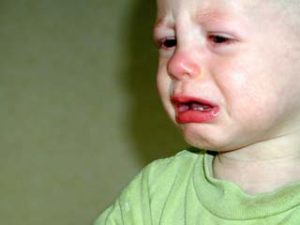 Frustration can be a cause for why a child is hitting, but should not be an excuse. Even adults get so frustrated that they just want to punch someone or something; isn’t that why a parent hits their child who is hitting?! The parent is frustrated with the hitting child and so they hit the child for hitting. This sounds like a vicious circle! Acting out on that frustration models a negative reaction and makes you and your child feel bad.
Frustration can be a cause for why a child is hitting, but should not be an excuse. Even adults get so frustrated that they just want to punch someone or something; isn’t that why a parent hits their child who is hitting?! The parent is frustrated with the hitting child and so they hit the child for hitting. This sounds like a vicious circle! Acting out on that frustration models a negative reaction and makes you and your child feel bad.
When my oldest daughter was less than 2 years old I saw her get really frustrated because I kept picking her up and moving her to where I wanted her to be. She cried and was frustrated. I thought about how hard it is to be a little person and know what you want to do and where you want to go, but someone bigger than you keeps physically moving you from your goals. How frustrating that is for these little people! I found that the more I communicated with her, telling her what we were going to do and where we were going to go, or why something is dangerous and she can’t touch (just look with your eyes) etc., the less frustrated she would get.
Punching something can be therapeutic if done appropriately. Many adults will get a punching bag or learn to do yoga or meditate as ways to deal with frustration. Here are more ideas on how to parent and help a child deal with frustration in better ways.
Stop the hitting
Things you can do to stop the hitting
- Model appropriate behavior.
- Teach a better way to express frustration and anger (Teach them about feelings and the names of those feelings.)
- Practice- Problem solving
- Teach them stress coping skills
- Are they acting out because they are bored, tired or hungry
- Do they need more time from you or the other parent?
- Are they competing for your attention? Is there sibling rivalry?


 Hit in order to teach your child to NOT hit
Hit in order to teach your child to NOT hit
 What oldest child hasn’t been called bossy? No matter what you do they tend to want to be a little bossy, but with good reason. They are older and they have learned so much about what to do and what not to do. However, there are probably things you are doing to contribute to their bossiness.
What oldest child hasn’t been called bossy? No matter what you do they tend to want to be a little bossy, but with good reason. They are older and they have learned so much about what to do and what not to do. However, there are probably things you are doing to contribute to their bossiness. The oldest child often becomes the helper/assistant. You ask them to get and do things for you, frequently. Parents often become dependent on the oldest child getting up and doing what they themselves don’t want to get up and do. Things they would get up and do with the first child, they delegate to the oldest. Some of this is appropriate. Older kids should learn to help out. I am talking about expecting them to be at your beckon call whenever you want them regardless of what they are doing and what is going on. You want them to stop whatever they are doing and help you, so you can continue your conversation or whatever it is you are doing. What makes you think your child is any different? Demanding that your child come running every time you call; is that how you like to be treated?
The oldest child often becomes the helper/assistant. You ask them to get and do things for you, frequently. Parents often become dependent on the oldest child getting up and doing what they themselves don’t want to get up and do. Things they would get up and do with the first child, they delegate to the oldest. Some of this is appropriate. Older kids should learn to help out. I am talking about expecting them to be at your beckon call whenever you want them regardless of what they are doing and what is going on. You want them to stop whatever they are doing and help you, so you can continue your conversation or whatever it is you are doing. What makes you think your child is any different? Demanding that your child come running every time you call; is that how you like to be treated?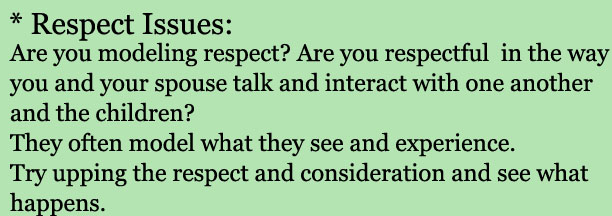
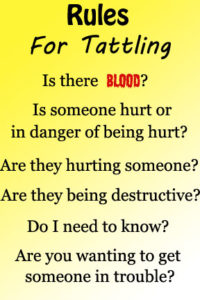
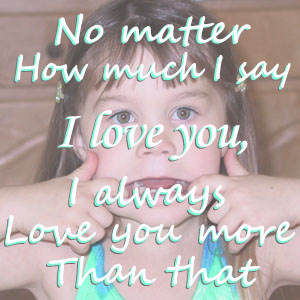


 Let’s start with back talking. Is your child really back talking? Or are they trying to tell you they are overburdened, over whelmed, or frustrated? Remember, this is a child. They don’t have all the years of experience in handling situations. Teach them how to better express themselves and say what they really want and how they feel. They might be having a hard time finding the right words. Tell them you want to listen to them, that they seem upset but being disrespectful is not how you work things out. This just creates more anger, but keep your cool mom and dad. How are they supposed to learn how to communicate better if you just get mad at them and don’t listen?! They may be trying to be heard before they get cut off.
Let’s start with back talking. Is your child really back talking? Or are they trying to tell you they are overburdened, over whelmed, or frustrated? Remember, this is a child. They don’t have all the years of experience in handling situations. Teach them how to better express themselves and say what they really want and how they feel. They might be having a hard time finding the right words. Tell them you want to listen to them, that they seem upset but being disrespectful is not how you work things out. This just creates more anger, but keep your cool mom and dad. How are they supposed to learn how to communicate better if you just get mad at them and don’t listen?! They may be trying to be heard before they get cut off.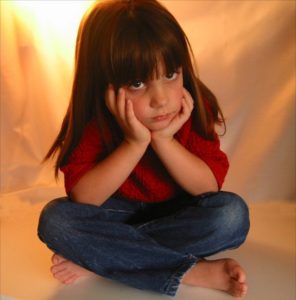 They might be. Evaluate that. Do they need to be graduated to a new job so the younger one/s can learn to help out too? Do jobs need to be rotated? Are rewards and consequences given out fairly? My oldest daughter once made a comment that made me realize we weren’t giving any chores to the youngest and she was old enough to be doing chores, too. The youngest wasn’t too happy about this being pointed out, but it needed to happen.
They might be. Evaluate that. Do they need to be graduated to a new job so the younger one/s can learn to help out too? Do jobs need to be rotated? Are rewards and consequences given out fairly? My oldest daughter once made a comment that made me realize we weren’t giving any chores to the youngest and she was old enough to be doing chores, too. The youngest wasn’t too happy about this being pointed out, but it needed to happen.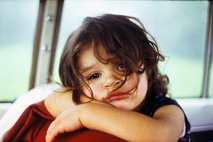 My mom always said she hated 5 year olds! She said they always think they know everything! They aren’t trying to prove to you that they are smarter than you. They don’t necessarily know that you know, what they just discovered. They just learned it and are helpfully passing on their new found knowledge and wisdom.
My mom always said she hated 5 year olds! She said they always think they know everything! They aren’t trying to prove to you that they are smarter than you. They don’t necessarily know that you know, what they just discovered. They just learned it and are helpfully passing on their new found knowledge and wisdom. I wished this all the time! My mom often told me that I could have had ________________ if I were an only child or if I were the only girl in the family. Hmmm, is it any wonder that there was sibling rivalry in our home?
I wished this all the time! My mom often told me that I could have had ________________ if I were an only child or if I were the only girl in the family. Hmmm, is it any wonder that there was sibling rivalry in our home?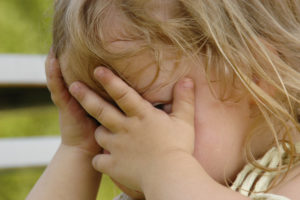 Many times it is true, because parents have a tendency to mellow as they get older. You don’t worry as much or about the same things as you have more children. All the worry is focused on that first child and new parents take everything so seriously. We find that some of the things we worried about weren’t as big a deal as we once thought. Sometimes we find better ways of doing things (parenting), the needs are different with other children/personalities, we aren’t as stressed, or even that we are tired (and end up doing less than we should). A child that rarely acts out may not be punished as severely as one that frequently acts out.
Many times it is true, because parents have a tendency to mellow as they get older. You don’t worry as much or about the same things as you have more children. All the worry is focused on that first child and new parents take everything so seriously. We find that some of the things we worried about weren’t as big a deal as we once thought. Sometimes we find better ways of doing things (parenting), the needs are different with other children/personalities, we aren’t as stressed, or even that we are tired (and end up doing less than we should). A child that rarely acts out may not be punished as severely as one that frequently acts out. My parents always told me how important my example was to my siblings. Not a bad thing, right. Lots of parents tell their kids this. It is true, to a point. My oldest complained about math and hated it. She was very vocal about her hatred of math. Consequently, all my other girls have struggled with math and claimed they hated it! Even my #3 who is brilliant with math.
My parents always told me how important my example was to my siblings. Not a bad thing, right. Lots of parents tell their kids this. It is true, to a point. My oldest complained about math and hated it. She was very vocal about her hatred of math. Consequently, all my other girls have struggled with math and claimed they hated it! Even my #3 who is brilliant with math.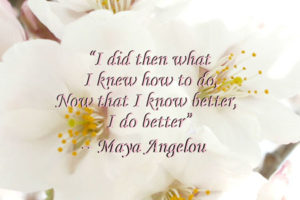
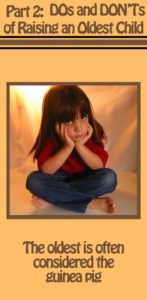


Recent Comments